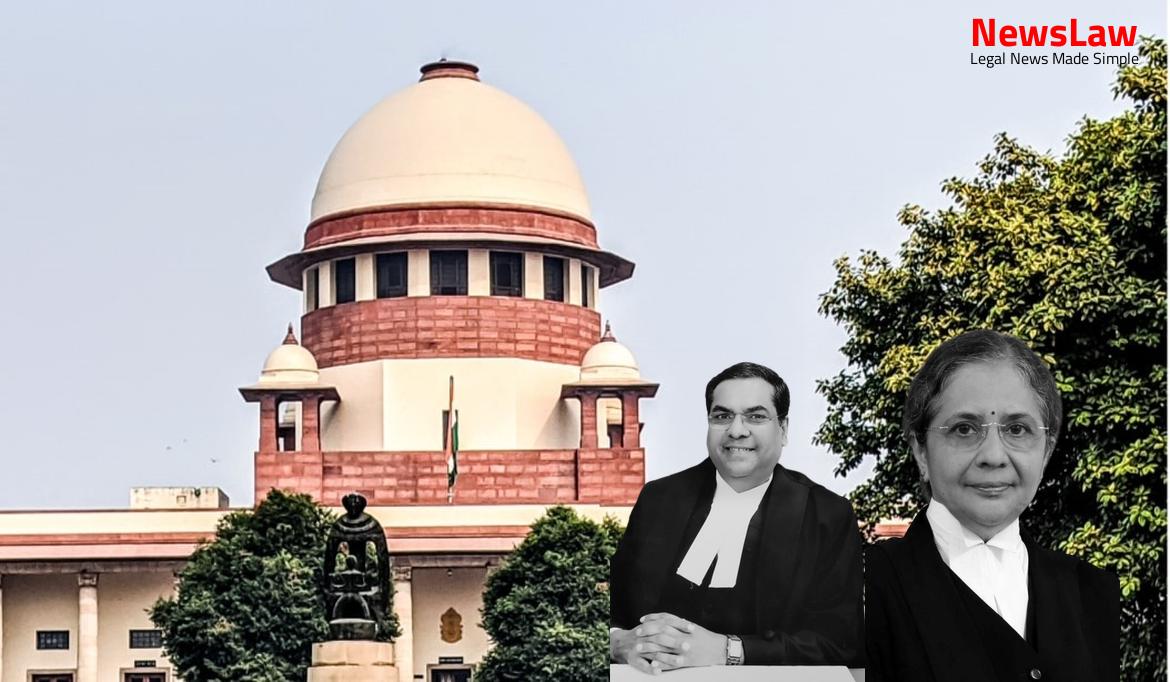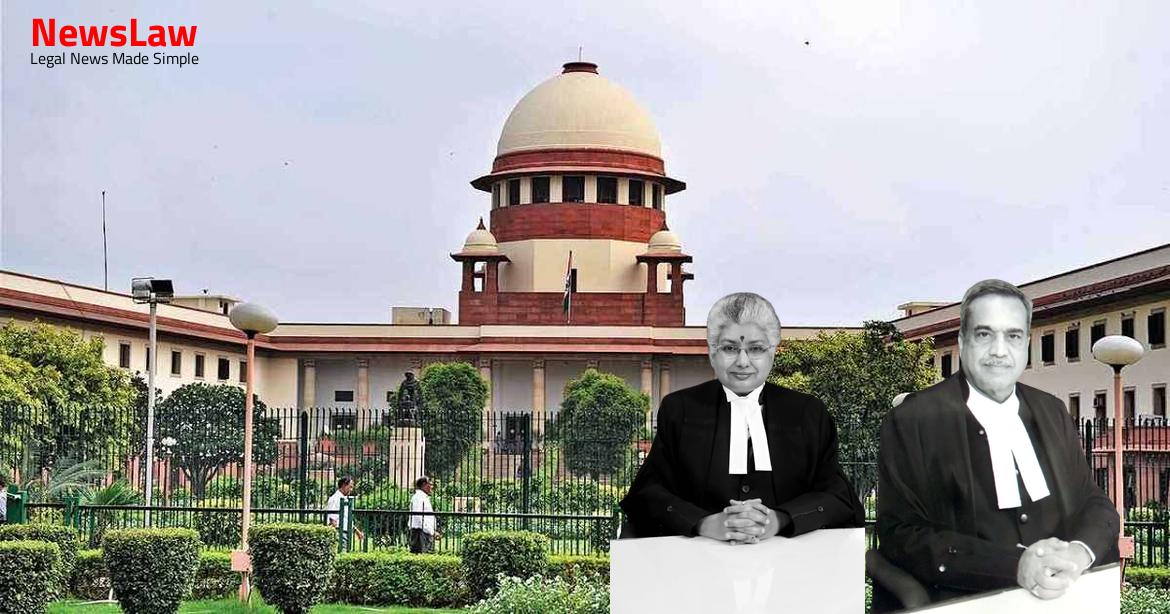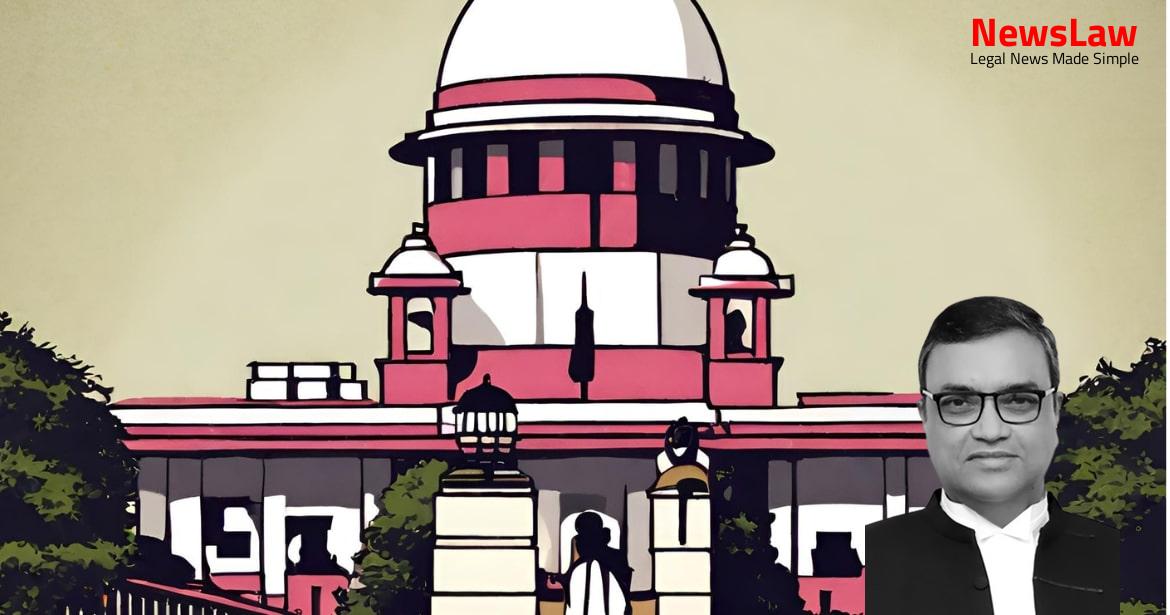Explore the detailed legal analysis by the court regarding an insurance contract breach in a vehicle theft case. The judgment delves into the obligation to inform the insurer promptly, especially in theft scenarios, and assesses the duties of the insured party in cooperating with the insurance company. Gain insights into the interpretation of contractual provisions and the significance of immediate communication in maintaining the validity of insurance claims. Follow along to understand the nuances of insurance law and contractual obligations in similar situations.
Facts
- The appeal is against the order dated 9 September, 2016 by the NCDRC in Revision Petition No 1104 of 2016.
- The NCDRC set aside the orders passed by the State and District Consumer Disputes Redressal Forums.
- The appellant filed a complaint against the Insurance Company for not settling the claim in a reasonable time.
- State Commission partly allowed the appeal by increasing the interest rate awarded by the District Forum.
- None of the respondents appeared during the proceedings.
Also Read: Analysis of Bail Conditions in Criminal Appeal No. INSC 48/2024
Issue
- Whether the Insurance Company could repudiate the claim in toto for the loss of the insured vehicle due to theft based solely on a delay in informing the company about the theft.
- Undisputed facts include the purchase of Tata Aiwa Truck by the appellant on 31.10.2007, its insurance with the Respondent No 1- Insurance Company, and its robbery on 04.11.2007.
- An FIR was registered by the appellant on 05.11.2007 for the offence under Section 395 IPC at Police Station Nagina, District Mewat (Haryana).
- The accused were arrested, and a challan was filed, but the vehicle could not be traced, leading to a police report declaring it untraceable on 23.08.2008.
Also Read: Conviction Upheld for Murder and Concealment of Body
Analysis
- The analysis of the judgment focuses on the breach of Condition No. 1 of the Insurance Contract by the complainant, which mandates immediate notice to the insurer of any accidental loss or damage.
- The Insurance Company repudiated the claim citing the delay in informing about the loss, despite not disputing the genuineness of the claim itself.
- The court divides Condition 1 into two parts, distinguishing between theft or criminal acts and accidents.
- Immediate notice to the police and insurer is emphasized for theft incidents to expedite vehicle recovery.
- The duty to cooperate with the insurer is assessed based on actions prejudicial to the company.
- The role of the police in tracing and recovering the vehicle is crucial before lodging a compensation claim.
- Delay in informing the insurer, when already reported to law enforcement, should not typically breach the duty to cooperate.
- The judgment’s ratio establishes that delay in informing the insurer, after prompt police reporting of theft, should not be grounds for denying a claim.
- The court clarifies the interpretation of ‘cooperate’ under the insurance contract in the given circumstances.
- The second part of Condition 1 pertains to theft or criminal acts other than accidents, highlighting the specific requirements for these situations.
- When interpreting a contractual provision, the court considers facts or circumstances known at the time of contract creation and to both parties.
- If an event occurs post-contract that wasn’t intended by the parties, the court will infer the parties’ intended effect.
- Contracts are interpreted based on their context, such as in a commercial vehicle package policy.
- Insurance contracts are generally governed by the rules applicable to general contracts, with contra proferentem rule applied in case of ambiguity and favoring the party with lesser bargaining power.
- Hammered in that insurance policy follows the terms and conditions strictly, especially regarding immediate communication and cooperation in case of incidents.
- Notice in writing to be given to the company immediately upon the occurrence of any accidental loss or damage.
- Notice in writing to be given to the company immediately if the insured has knowledge of any impending prosecution, inquest, or fatal inquiry related to an occurrence that may give rise to a claim under the policy.
- All actions required under this part are related to the occurrence of an accident.
- Receipt of letter, claim, writ, summons, or process by the insured only arises in the event of criminal proceedings initiated regarding the accident.
- Insured to give notice to the company immediately upon knowledge of impending prosecution, inquest, or fatal inquiry related to an occurrence that may lead to a claim under the policy.
- Insured to provide all necessary information and assistance to the company in the event of a claim.
- Forwarding of every letter, claim, writ, summons, or process received by the insured to the insurance company immediately.
- The NCDRC should not have set aside the orders of the District Forum and the State Commission.
- The repudiation of the insurance claim by the insurance company was held as justified, which was incorrect.
- The impugned order goes against the settled position of law and is deemed erroneous.
- The impugned order is set aside in accordance with the above reasons.
Also Read: 1991 Decree Invalid: No Determination of Rights in Property Dispute
Decision
- The appeal was allowed
- The order of the State Commission was affirmed
Case Title: JAINA CONSTRUCTION COMPANY Vs. ORIENTAL INSURANCE COMPANY LIMITED (2022 INSC 177)
Case Number: C.A. No.-001069-001069 / 2022



